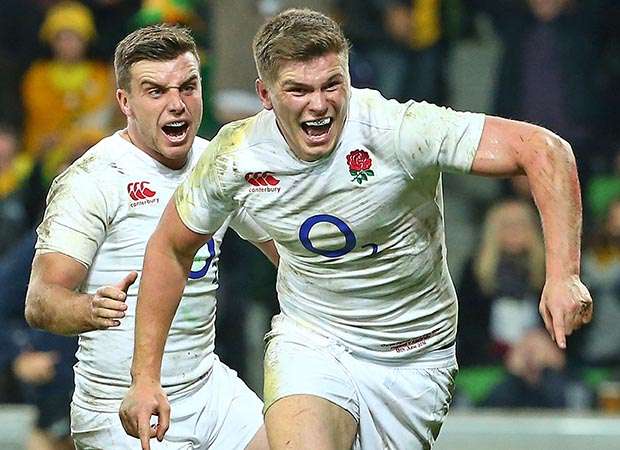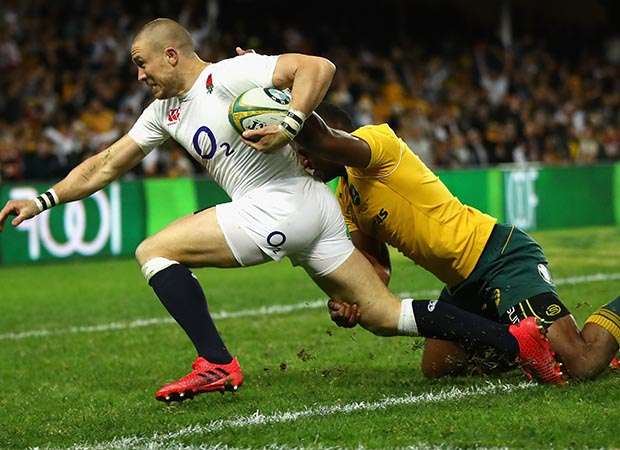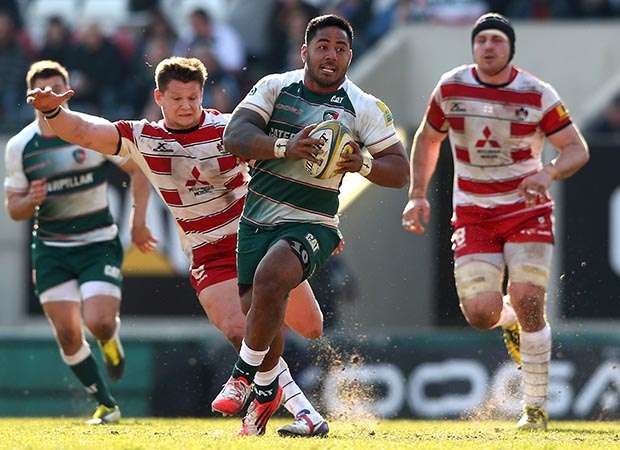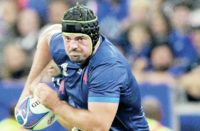 If outside praise makes you as weak as Eddie Jones says, then England are in grave danger of shuffling out on their knees when they meet South Africa in the first autumn international at Twickenham.
If outside praise makes you as weak as Eddie Jones says, then England are in grave danger of shuffling out on their knees when they meet South Africa in the first autumn international at Twickenham.
The cascades of superlatives heaped on England since their unprecedented 3-0 whitewash of Australia was completed in Sydney last weekend will scare Jones much more than any of England's opponents in an autumn schedule that sees them follow the Springboks with Fiji, Argentina and Australia on consecutive Saturdays from November 12 to December 3.
The most obvious concern the England head coach will address when his squad convene again for a three day training camp at the beginning of August is that they start to believe the hype and lose focus. The next worry is that after nine wins out of nine ‘second season syndrome' could strike, with the coach and his players sapped of drive and energy by having scaled, if not Everest, then K2, in the last seven months.
Will Maro Itoje, Anthony Watson, Jack Nowell, Paul Hill and even Billy Vunipola, all of whom are 23 or under, be able to keep their feet on the ground having followed a Six Nations Grand Slam by becoming the first of the home unions to secure a tour clean sweep against one of the Southern Hemisphere big three?
Of equal importance, will they and their more experienced teammates, like captain Dylan Hartley, Dan Cole, James Haskell, Chris Robshaw, Courtney Lawes and Ben Youngs, be able to live with the relentless demands of being fitter and sharper than any other players on the planet while undertaking a seriously demanding domestic club schedule?
Bear in mind that having just finished a 12 month season after commencing World Cup training last June, the England squad will have to be ready for another 12 month battering following a five week holiday from the end of June to the end of this July. This is because the 2017 Lions tour of New Zealand is scheduled to finish in the middle of next July.
When Jones maps out his plans for the new season at the August training camp the vacation will come to an abrupt halt. Yet, despite having condemned the traditional “end of a long season” defeatism before the Australia tour, Jones acknowledged barely an hour after the series was won in Sydney that his team was hanging.
When asked if some of the defensive lapses during their 44-40 win over the Wallabies in the final Test were down to fatigue, Jones commented: “I don't think you can use that as an excuse, but we definitely fell off a number of tackles tonight. So it could have been a factor.”
Questioned further about whether it was right that his players had been going for over a year Jones was even more frank. “I don't think it's right.” He added that he approved “100 per cent” that in every four year cycle there should be a fallow year without a tour.
 “I've spoken to (RFU chief executive) Ian Ritchie about that and we are in agreement. Ian is going to try and push that forward to the World Rugby meeting. Ideally it should go: fallow year, then the Lions year when you have a development tour away, and then the third year, you have a big tour, three Tests and maybe some midweek games. No, these players should be sitting on a beach in Barbados now.”
“I've spoken to (RFU chief executive) Ian Ritchie about that and we are in agreement. Ian is going to try and push that forward to the World Rugby meeting. Ideally it should go: fallow year, then the Lions year when you have a development tour away, and then the third year, you have a big tour, three Tests and maybe some midweek games. No, these players should be sitting on a beach in Barbados now.”
The inescapable picture is one of Jones as the magician who has just wowed his audience with brilliant sleight of hand, only to reappear moments later saying, “and for my next trick…”, while wondering how he can trump it.
It's not that Jones doesn't have a next trick in mind. It's called continuing to win – but sustained excellence is something that English rugby, in common with most of our other sports, does not do well. The speed of England's fall from grace from previous peaks has frequently been instantaneous, with the 2003 World Cup a case in point.
Jones saw that the slump first-hand, and is highly critical of the 2004 England touring side he confronted as coach of the Wallabies, as a team which had arrived Down Under more concerned about partying than playing. It's as if having scaled the heights the view gets too heady for English teams, and the rigour that got them there is forgotten in a round of backslapping that can go on for years, let alone months.
What we learned from the tour is that England, notwithstanding the development of strong team spirit, are far from the finished article despite their nine match winning run under Jones.
This is not news to the head coach, who didn't take long to cut against the celebratory grain in his initial tour post-mortem. He was unequivocal that England do not yet have the five world-class players he wants, raising doubts that any of his team would make a World XV, although he said Owen Farrell and Billy Vunipola were “moving in the right direction”.
However, there was also a fist in the velvet glove, with Jones stating that a couple of other players had been found out. He warned, “they did really well in the Six Nations and have been quite poor on tour”, and then fired a further shot across the team's bows, saying that although the performance in Sydney had been brave, “we had a lot of players sub-par”.
The reality for an England side with aspirations to be world champions is that leaking 10 tries in three Tests to a misfiring Wallaby side shows significant defensive fault lines.
While these were glossed over by the epic rearguard action in the decisive second Test in Melbourne, with Australia tackled to a standstill, concerns remain.
With the exception of James Haskell there is a shortage of offensive tacklers in the side – and in the first two tests had Haskell not done the tackling of two men the outcome may have been different. Too often the tackling decked the runner without England ever threatening to gain possession, allowing the Wallabies to build multiple phases and mount pressure. Concede that sort of possession and territory to New Zealand and the scoreboard will be clicking over non-stop.
England have to aim to fracture the opposition attack by winning early turnovers, and the best way to achieve that is through the sort of aggression and technique which Haskell has mastered, and which was once a Lawes hallmark. As New Zealand have proved, scoring off ball turned-over in the loose by aggressive tackling and foraging is worth its weight in gold, as well as being a psychological hammer blow.
Another clear danger for any team with a world class goal-kicker like Farrell is the dependency culture that springs up around them. Without Farrell's icy composure and exceptional technique – increasingly reminiscent of his pre-tour mentor, Jonny Wilkinson – England would almost certainly not have beaten Australia.
It is not just that the Saracens hot-shot kicked 26 out of his 29 attempts, it is when he kicked them. Invariably he racked up the points in the final quarter of each Test, punishing the Wallabies for every disciplinary lapse, and it was the pressure this generated which broke them.
Farrell also steadied England's nerves in the face of the early blitz in Brisbane in the tour opener. With Bernard Foley failing to convert the tries by Michael Hooper and Israel Folau the Wallabies had to watch as Farrell nullified their advantage, chipping away with three penalties to make it almost level pegging at 10-9 on the half-hour, with their early pyrotechnics counting for nothing.
 Goal-kicking of that calibre is priceless, and although Farrell is as robust as they come, no player is immune from injury. England's goal-kicking options in the event of Farrell being unfit are not negligible, but at the moment George Ford is not world class, and nor is Elliot Daly. To be fair to Ford he has the makings, but he has work to do to eliminate the yips that struck in the pre-tour warmup against Wales.
Goal-kicking of that calibre is priceless, and although Farrell is as robust as they come, no player is immune from injury. England's goal-kicking options in the event of Farrell being unfit are not negligible, but at the moment George Ford is not world class, and nor is Elliot Daly. To be fair to Ford he has the makings, but he has work to do to eliminate the yips that struck in the pre-tour warmup against Wales.
In Daly's case it is a question of aligning the remarkable power he generates with far greater accuracy. What we do know is that neither Ford or Daly, Henry Slade or Danny Cipriani, are in the same kicking league as Farrell.
If a Farrell injury scenario poses one conundrum that requires an answer, so does his move to inside-centre in Brisbane to facilitate Ford's reintroduction at fly-half. There is no question that the decision by Jones to realign them at Luther Burrell's expense was pivotal to England's victory not just in that game, but in the series overall.
However, while the dual play-making and kicking options that the Ford-Farrell combination brings gave England shape in attack and defence – and, crucially, saw them win the tactical kicking duel – it was also obvious that England's midfield lacked offensive thrust.
Farrell's attributes as a goal-kicker, tackler and distributor are writ large, but if you compared his ability to threaten the line with that offered by Matt Toomua when he came back from injury in the final Test, it was chalk and cheese.
This explains why Jones was so keen to get a big runner in the 12 shirt, with Manu Tuilagi, above, his first option, and Burrell and Ben Te'o as backup.
Whether Tuilagi can transform himself into England's answer to Ma'a Nonu at inside-centre is as unknown as the strategy Leicester opt for when he and Toomua feature in the same Tigers midfield later this season.
Farrell or Tuilagi at 12 is not the only selection riddle that Jones will want to solve this season as he seeks to assemble the crew to make the 2019 World Cup assault.
In the pack super-sub Jamie George will continue to push hard for Dylan Hartley's shirt at hooker, and despite having given the team genuine leadership the captain will have to raise his game in the loose.
The balance in the back-row is another component that will shift if one of Jack Clifford, Teimana Harrison, Matt Kvesic – who showed strongly for the Saxons in South Africa – or young Sam Underhill, can make an unanswerable case at openside.
However, Haskell has put down a formidable marker and will take some shifting – although there is the option of playing him at blindside.
Last but not least, Jones is unlikely to be satisfied with the showing of his back three Down Under. So far, Mike Brown has resisted the challenge of Alex Goode at full-back, but the Saracens 15, named the Premiership's player of last season, shows no signs of giving up the chase.
Brown, Anthony Watson and Jack Nowell will have to look lively, especially with Jonny May fit again and England's head coach saying that he will promote any of the 2016 junior world champion side who merit it to the elite squad, which is expected to be announced in early August.
Whatever answers Jones comes up with there will be one goal in sight. Namely, finding a squad good enough to become world champions – and he will want to complete that search by the end of this season.


























